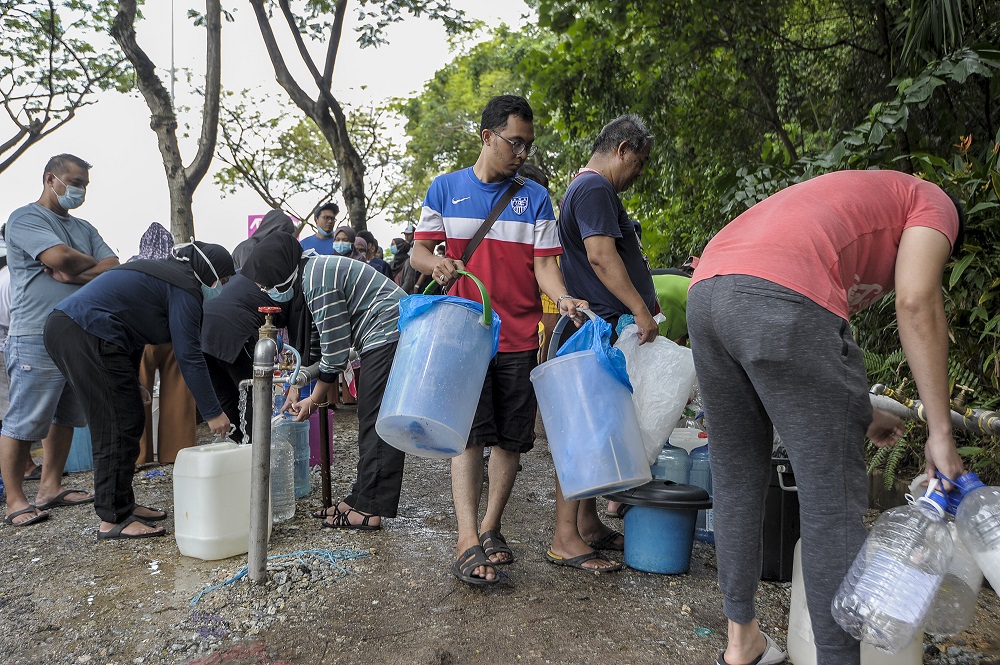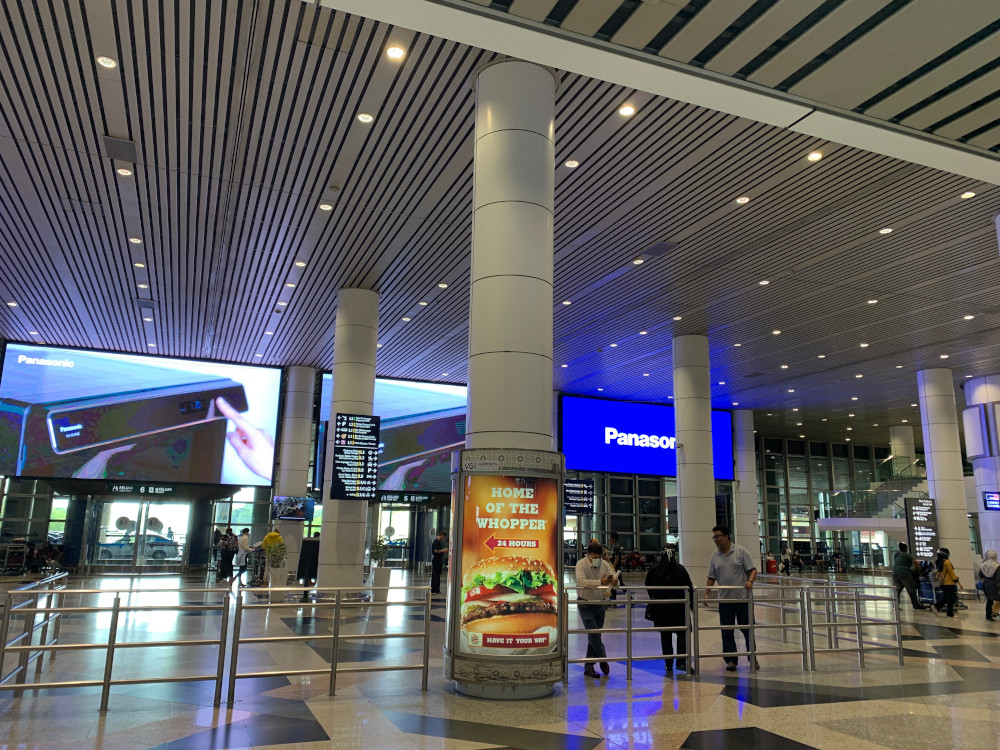KUALA LUMPUR, Jan 2 ― There was no way anyone could have predicted how 2020 would have turned out, how it has impacted and completely changed how we live our lives.
From a deadly pandemic to a global movement for racial justice, 2020 unquestionably experienced its fair share of events, internationally.
But in Malaysia, a quick check done by Malay Mail to see what the average Malaysian reader’s interests have been in 2020, and it’s obvious what quickly stands out is articles related to the Covid-19 pandemic locally.
But the list is not shy on the usual politicking too, with the likes of Datuk Seri Rina Harun’s Doraemon fiasco and Ku Nan’s court outburst in the list too.
Below is Malay Mail’s Top 10 Most Read Stories of 2020:
Our most read story of the year 2020 was Bank Negara Malaysia’s (BNM) decision on implementing an automatic six-month moratorium on all bank loans ― except for credit card balances ― for those affected by the Covid-19 outbreak on March 24.
This comes amid the first outbreak of the Covid-19 virus in Malaysia, where Malaysia first went into a partial lockdown ― simply called movement control order (MCO) ― on March 18, where most businesses were closed and only one person in each household was allowed to leave the house for food and groceries.
The effect of this was devastating. Many got their wages cut, and even lost their jobs. As a result, many defaulted on loans and mortgages as savings continue to dwindle.
The moratorium was among the additional measures announced by BNM, which were designed to ensure that “the financial intermediation function of the financial sector remains intact, access to financing continues to be available and banking institutions remain focused on supporting the economy during the exceptional circumstances”.
Stories relating to the Covid-19 outbreak in Malaysia feature prominently in our top 10 most read stories in 2020.
So it would not be surprising that Prime Minister Tan Sri Muhyiddin Yassin's first ever announcement on March 16 on Malaysia going into a nationwide movement control order (MCO) from March 18 until March 31 was the second most read story in 2020.
This came after one of Malaysia’s first clusters ― the Tabligh cluster ― emerged from a religious gathering held in the Sri Petaling mosque, Kuala Lumpur and involved over 16,000 attendees.
The Tabligh cluster posed as one of the largest threats at the time in Malaysia for nearly four months and was responsible for 3,375 positive cases, 87 ICU patients, 34 deaths and 17 sub-clusters.
It was one of the first major Covid-19 scares we Malaysians faced.
On March 19, Malay Mail’s Thasha Jayamanogaran reported on the situation at KLIA International Airport on day one of the Covid-19 shutdown in Malaysia -― where all foreigners were not allowed to enter Malaysia till March 31.
She shared how the bustling airport, full of people was now a “ghost town” except from the noise coming from foreigners trying luck to negotiate their way in, to no avail of course.
She also talked to the few Malaysian parents waiting for the return of their children who were studying abroad, with one pair saying that it’s better that they come back now because of the uncertainty at the time.
On March 31, the Women, Family and Community Development Ministry shared a series of posts on their Facebook page telling women to wear make-up while working at home and speak to their spouses in a “Doraemon-like” tone and giggle coyly as opposed to “nagging” ― in reference to a well-beloved Japanese animation character.
This obviously drew a lot of flak from Malaysians, especially feminist groups, who questioned Women, Family and Community Development Minister Datuk Seri Rina Harun over the PSAs, questioning the latter’s priorities and urging her to focus on dealing with the rising cases of domestic violence since the lockdown.
They later apologised for the posts after receiving overwhelming response from various groups over the controversial posters, although it was a little too late to stop Malaysians having a field day with Doraemon memes.
On March 24, analysts at JPMorgan Chase & Co predicted that a peak in cases might occur around mid-April, based on a report released by their Equity Research group.
It projected that despite the looming acceleration phase of infections, the peak period would only last for approximately one-and-a-half to two weeks.
True enough, what it predicted came true. After a quick check, the whole of Malaysia was practically a red zone, with the exceptions of Kedah and Perlis. Malaysia was in full lockdown, and it was the height of the first wave of the pandemic.

6. Sources: Maszlee to resign as education minister
Number 6 on the list is a story on former education minister Maszlee Malik and his resignation from Cabinet.
On January 2, three separate sources close to Maszlee told Malay Mail that he was expected to announce his resignation from Cabinet later that day ― with him already handing in his resignation letter to at time prime minister Tun Dr Mahathir Mohamad earlier that afternoon.
It was later reported that Maszlee was forced to resign after he had failed to listen to advice and had on several occasions gone against Cabinet decisions after he reportedly received a letter from Mahathir on December 27, 2019.
Maszlee had courted controversy over the introduction of Jawi script lessons in vernacular schools when Chinese education groups were against it, which led to hostility from Malay pressure groups which had called for vernacular schools to be shut down.

7. Water disruption to last at least another four days, Air Selangor says
On September 4, Air Selangor said that water supply to around 1.2 million users would continue to be affected for another four days due to the contamination at the water treatment plants in Sungai Selangor Phases 1, 2, 3 and Rantau Panjang.
Water supply in the affected areas was disrupted following action to stop operations at the Sungai Selangor water treatment plants in Phases 1, 2 and 3, as well as Rantau Panjang due to pollution at the raw water source.
This water disruption affected a total of 1,292 areas in the Klang Valley, Petaling, Klang/Shah Alam, Kuala Selangor, Hulu Selangor, Gombak and Kuala Langat, and was already experiencing unscheduled water supply disruption since 10am the day before.
This would be the first of many water disruptions residents of Selangor faced September onwards, upsetting many for disrupting their already fragile lives.
8. Ku Nan bursts out in court after his assets of RM700m-RM900m while in Cabinet disclosed
This story is about former minister Datuk Seri Tengku Adnan Mansor ― also known as Ku Nan ― lashing out in the High Court after the judge refused his application to keep details of his asset declarations when he was in Cabinet away from public scrutiny.
On March 4, Tengku Adnan stood trial for allegedly receiving a bribe of RM2 million from a businessman. While being questioned by the prosecution, Tengku Adnan suddenly burst out angrily after deputy public prosecutor Julia Ibrahim had suggested to Tengku Adnan that he was only giving his personal opinion with his previous allegation in his witness statement.
On December 28, Ku Nan was charged in his capacity as a public servant, namely Minister of Federal Territories, with having received for himself a total of RM2 million from a businessman, Tan Sri Chai Kin Kong.
High Court Judge Mohamed Zaini Mazlan sentenced Tengku Adnan, 70, to 12 months in jail and RM2m fine, in default six months’ jail, after finding him guilty of the charge.
He has filed an appeal against a 12-month jail sentence and RM2m fine, with the notice of appeal filed the same Monday through the online judicial system (e-filing).
9. Sabah Election 2020: Official final tally — GRS secures 38 seats to Warisan’s 32
On September 26, the Election Commission announced the results of all 73 seats up for grabs in the 16th Sabah state election.
Hence, PN, BN and PBS, which are allied under Gabungan Rakyat Sabah (GRS) ― which was made up of Perikatan Nasional (PN), Barisan Nasional (BN) and Parti Bersatu Sabah (PBS) ― won 38 seats against opposition Warisan — allied with PKR and Upko — that won 32.
Three days later, Sabah PN chairman Datuk Seri Hajiji Mohd Noor was sworn in as Sabah Chief Minister at the State Palace.
What many would come to realise is that the Sabah elections would become the epicenter of Malaysia’s third Covid-19 wave, which is by far the worst wave we have faced so far.
In November, Prime Minister Tan Sri Muhyiddin Yassin finally admitted that the third COVID-19 wave that the country is experiencing now was caused by the Sabah state elections after months of skirting around the issue.
10. Putrajaya declares two-week lockdown in two areas in Kluang, effective midnight
This last story is on Putrajaya’s announcement on the implementation of an enhanced movement control order (EMCO) in two areas in Simpang Renggam after recording 61 positive cases of Covid-19 there, out of 83 in Kluang.
On March 26, the health ministry said the EMCO in Kampung Dato’ Ibrahim Majid and Bandar Baharu Dato’ Ibrahim Majid will involve 3,570 local residents from 650 families.
This was of course, one of the many announcements of the implementation of either the enhanced, conditional or recovery MCOs Senior Minister (Security Cluster) Datuk Seri Ismail Sabri has had to announce, and still continues to this day.






















